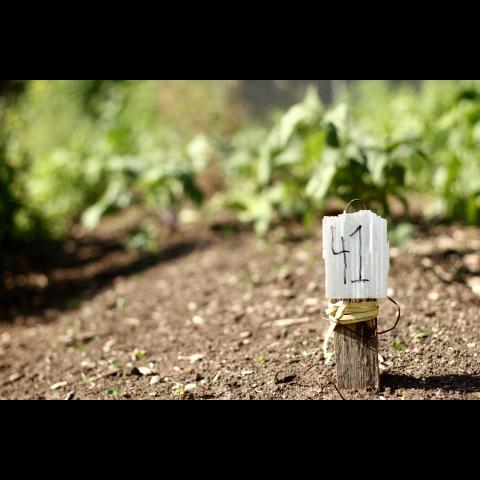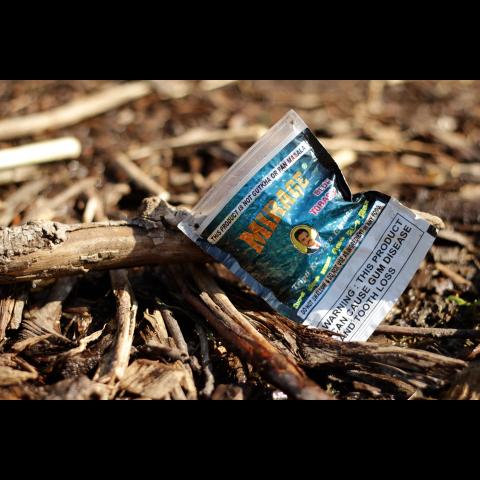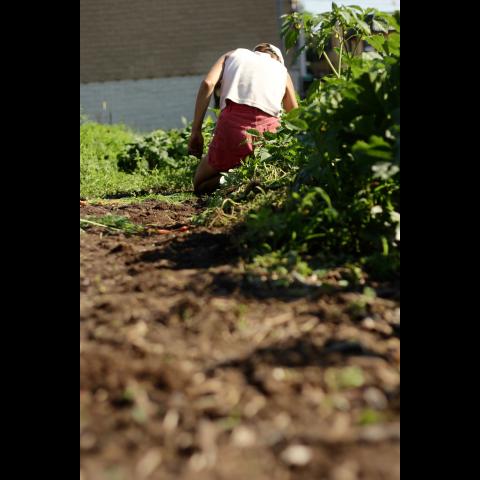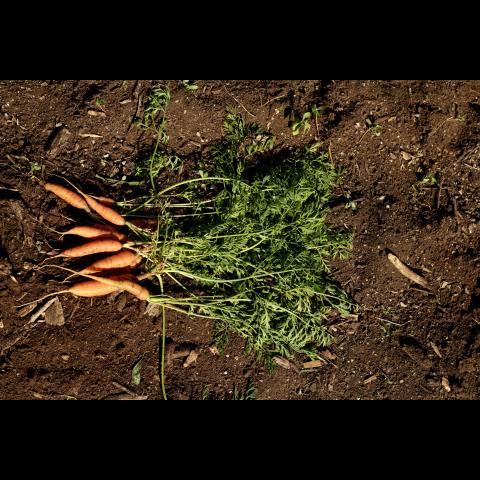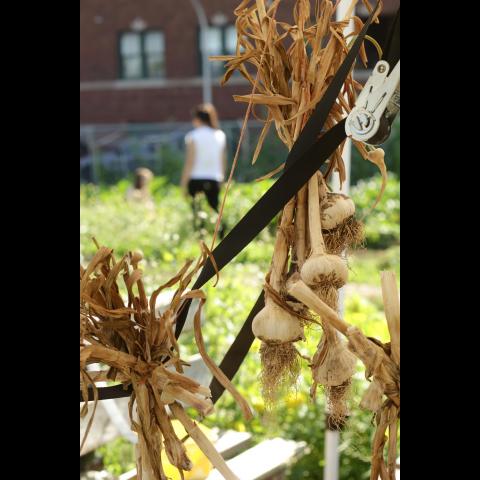Introduction
The Global Garden Refugee Training Farm is located in Albany Park, one of Chicago’s most ethnically diverse neighborhoods. Started in 2012, the farm serves refugees who were professional farmers in their native countries. Currently, the farm has 100 plots, and the majority of refugees are from Burma and Bhutan, along with a few families from the Congo, Burundi, and Nepal. The site explicitly addresses the physical health and economic well-being of the farmers, i.e. through partnerships with the Heartland Alliance and the Horner Park Farmer’s Market, while simultaneously fostering a strong, interethnic community that inadvertently addresses the emotional and mental health of the refugee farmers. The refugees grow plants for personal consumption, sale at the farmer's market, and traditional medicinal uses.
Most of the refugees are come to the US directly from refugee camps, where they have often lived for up to 20 years. In addition to the basic struggles of adaptating to a new country — i.e., language barriers and finding jobs — many refugees enter the United States with health deficits and chronic conditions like diabetes, and they are also at high risk of adopting poor eating habits. The farm allows them to grow traditional crops they know and like, gives them the opportunity to interact with other refugees to build and strengthen community ties, and helps them carry on cultural traditions.
The farm is a safe space for refugee families to come together as they adjust to life in the United States. Children run around the garden plots within the safety of the fenced farm, elderly family members who are at risk of isolation have a space to be social and foster friendships, and the market provides a friendly and low-risk space for refugees to practice English, interact with the larger Albany Park community, and share their knowledge about farming and agriculture.
In an interview with the farm's founder, Linda Seyler, we were told that in formal conversations and interviews she has had with some of the farmers, the word "home" comes up repeatedly: "When we did those formal interviews the word 'home' kept coming up. 'This feels like home,' they say. 'We see each other more, we socialize. Before we used to just be in our apartment and now we get out and socialize. And we feel a lot better. We feel so good about being to grow food for our family.'"
Placemaking in the Farm
The process of placemaking is quite evident in the farm — it is truly a space where refugees feel at home, and the way the individual plots are decorated reflects this. Refugees are quite resourceful and make use of branches, old furniture, and sometimes even mattress springs as trellises and support for their plants. As a result, the garden has a very homey feel. In one intern's fieldnotes, she described the garden as "feeling like [she] left Chicago and stepped into an entirely different, more peaceful world."
The farm is attempting to make waves in the community as well. They have a weekly farmer's market several blocks away in Horner Park where refugees are encouraged to sell produce and engage with the rest of the community. One of the head gardeners at the farm told us that many people stop by the farmer's market and have never heard of the farm, even though they live just a few blocks away, so in this way, the market has brought more publicity to the farm and has helped the community become more integrated with the farm. In addition, according to the garden leaders, there has been a surge in volunteer help in recent months as the Albany Park community has shown an increased interest in showing support for the refugee community since the recent election in January. It appears that the number of people from the community who see value in the garden is ever-growing.
All of these aspects of community interest and involvement are very important to Global Gardens Refugee Farm. The land was obtained via grant several years ago, and they are currently leasing the lot, which is located right next to a Chicago Parks District park that wishes to expand. Unfortunately, land insecurity is a big issue for the farm as the city could reclaim the lot at the end of the lease. By striving to become more integrated into the community, the farm hopes to be able to prove that a garden is an invaluable part of the Albany Park community in order to renew their lease at the end of its term.

